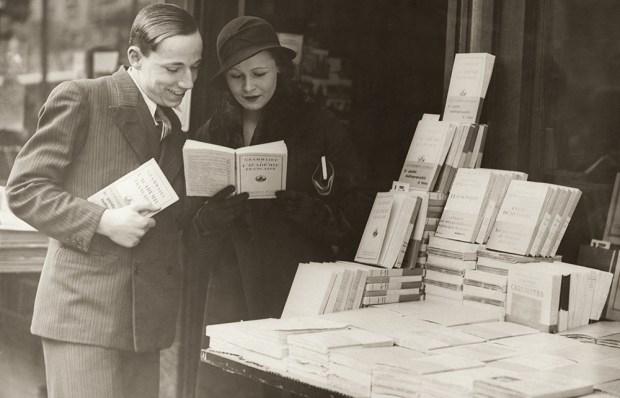Q. The other night, while hosting a house party, I was one of only three people still chatting by the fire after midnight. I reasoned that if I said goodnight, the one remaining guest, who was still very much enjoying talking to my wife, would feel this was a cue for her to go to bed too. Consequently I made a French exit. The next morning, my wife told me that my having slipped off without saying anything meant that the two of them had been waiting in uncertainty for me to come back, and had stayed up for around half an hour more than they would have done if I had made my own intentions clear. My wife claims you should never make a French exit leaving only two in a room. Can you clarify the protocol, Mary?
— M.B., Stanton St Bernard, Wilts
A. Your wife is correct. A French exit, whereby you slip away from a room without announcement so as not to disrupt ongoing gaiety, is only acceptable if there are going to be at least three carousers remaining. If you leave only two, then one of these has to eventually suggest winding up the evening, thus making the other feel perhaps he or she has become boring. Incidentally making a French exit or ‘taking French leave’ is known in most European countries as ‘taking English leave’ (‘filer à l’anglais’ in France).
Q. I find it easier, cheaper and safer to travel by bus in central London nowadays, rather than by car or Underground, but I am becoming increasingly annoyed by passengers who insist on ostentatiously shouting ‘Thank you, driver’ when alighting. My theory is that these people want to demonstrate to the rest of us that they know how to treat the staff, but they only make it clear with this affected behaviour that they don’t actually have any of their own. Can you think of a solution, Mary? I would prefer to not have to tolerate this nuisance.
— N. McA., London SW1
A. The motive of the thanker is not to show off that they are grand but because it is, or once was, a British custom to verbally recognise a useful service provided. Time was when every Londoner alighting from a bus thanked the conductor, and many have been brainwashed from birth to say ‘Thank you’. Now there is no conductor they thank the driver. Far from feeling patronised, drivers very much welcome the acknowledgement that they exist, let alone that they have a difficult,badly paid and physically uncomfortable job. Your objection is overruled.
Q. Regarding leaving the toilet seat up: the question does not arise if one puts hygiene above etiquette. To prevent splashes or droplet dispersal into the room, the lid should be closed before flushing. Then it should be left down. This bypasses the question of the position of the seat.
— P.W., Glendowie, New Zealand
A. Thank you for making this valid point.
Got something to add? Join the discussion and comment below.
Get 10 issues for just $10
Subscribe to The Spectator Australia today for the next 10 magazine issues, plus full online access, for just $10.
You might disagree with half of it, but you’ll enjoy reading all of it. Try your first month for free, then just $2 a week for the remainder of your first year.















Comments
Don't miss out
Join the conversation with other Spectator Australia readers. Subscribe to leave a comment.
SUBSCRIBEAlready a subscriber? Log in